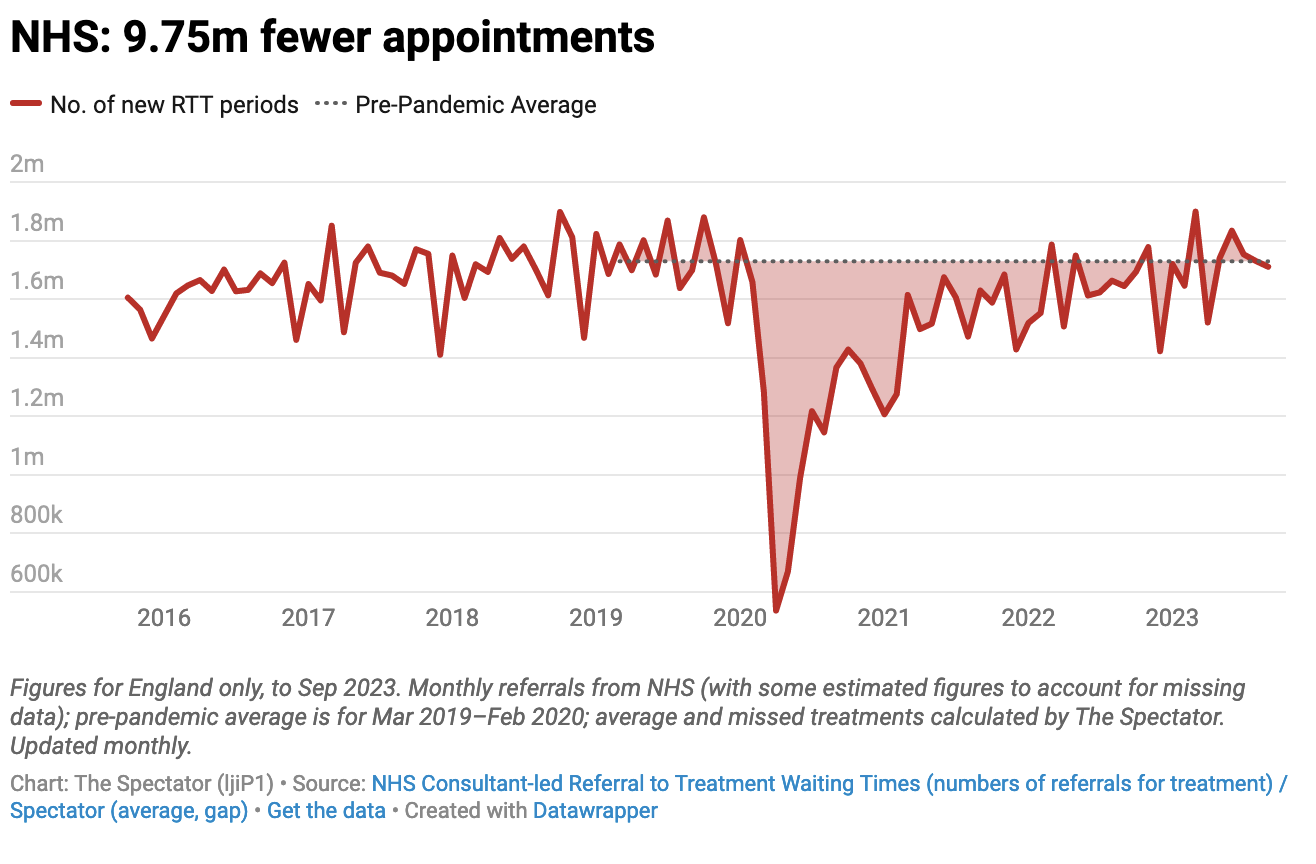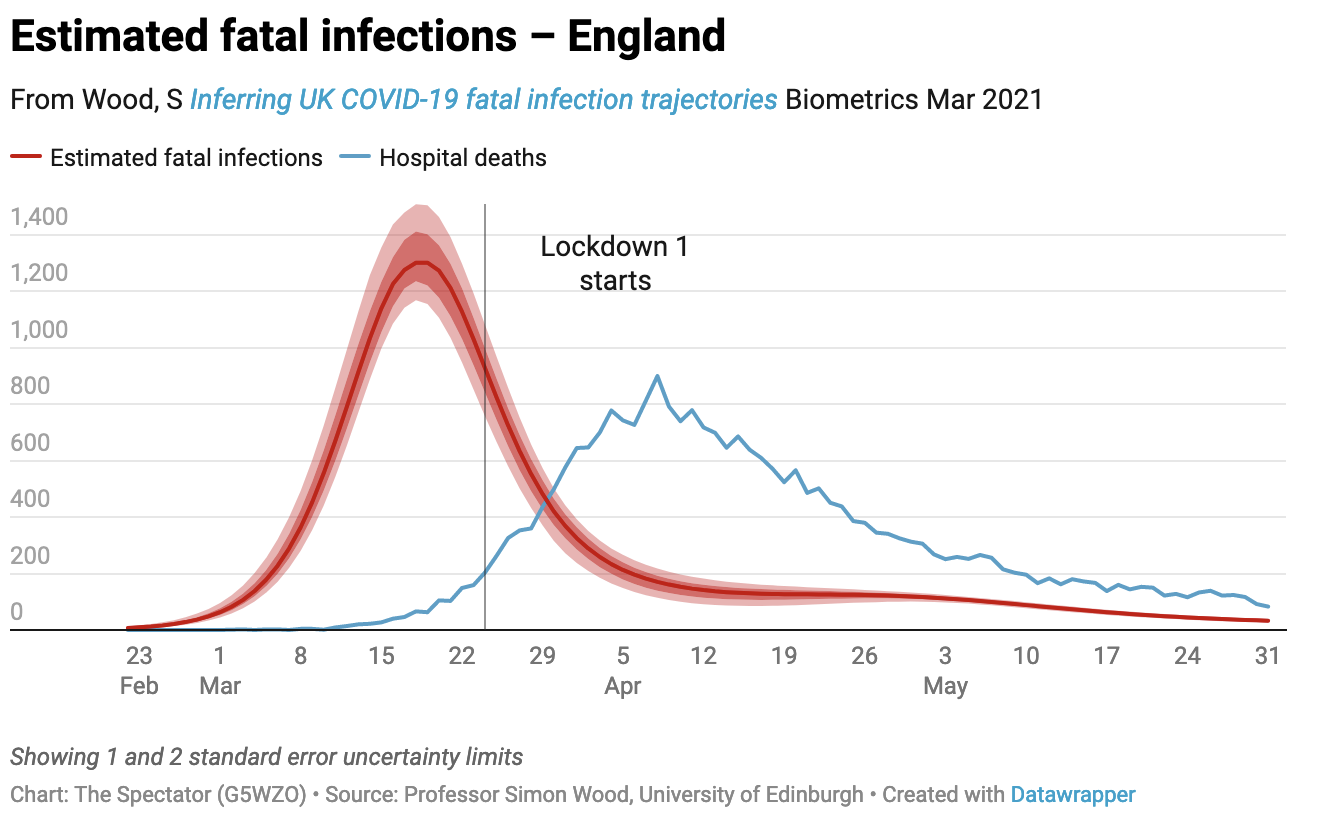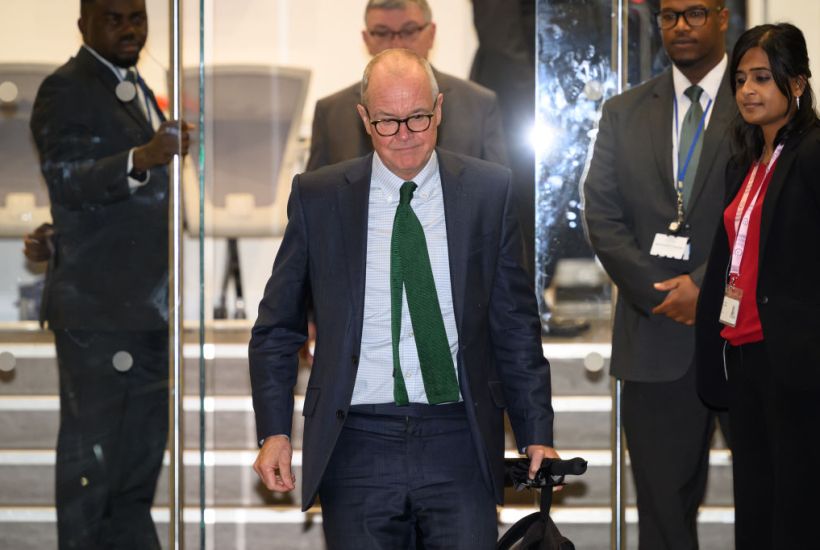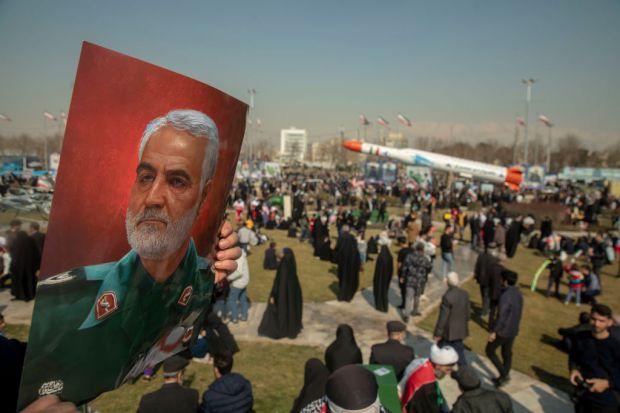Throughout the Covid meetings, Sir Patrick Vallance was scribbling almost as much as Michael Gove, leading Boris Johnson to assume that he was keeping a diary to be published afterwards. This made sense to Johnson who started to tell friends that Vallance knew ‘more about arse-covering than face-covering’ (Vallance had refused throughout the crisis to say whether the policy of police-enforced mask mandates had any basis in science). Now, we see the scribbles in Vallace’s diary via the Covid inquiry: not very illuminating, and mostly insults about those who opposed lockdown. But there is one point that I’d like to take issue with.
Vallance says that science was given too much weigh over economics. ‘The science was there for everyone to see. The economic advice wasn’t.’ This is not a new point. Imperial College’s now-notorious studies breezily admitted that they did ‘not consider the wider social and economic costs of suppression, which will be high’. Rishi Sunak told me in summer last year that as Chancellor he was not allowed to even refer to the side-effects of lockdown. The No. 10 ‘script’ – the briefing notes given to ministers giving interviews – was quite clear. ‘I wasn’t allowed to talk about the trade-off,’ Sunak told me. ‘The script was not to ever acknowledge them. The script was: oh, there’s no trade-off, because doing this for our health is good for the economy.’
So of course, Sage should have reported to a higher committee that would have considered the educational, social and economic impact of lockdown. But I don’t think Vallance is right to say the science reigned supreme. I’d say that politics was given too much weight over science, which is why Vallance ended up speaking culture-wars language when he should have been thinking like a scientist: sceptical, data-driven and keeping calm.
In his diaries, Vallance accuses Boris Johnson of wanting to ‘let it rip’ which is not a scientific term but Twitter-speak for anyone asking questions of lockdown policy. He summarised Dominic Cummings’s position as ‘Rishi thinks let people die and that’s okay’ – again crude language to disparage those asking whether lockdown would take more lives than it would save.
Sunak’s scepticism is being rapidly vindicated as we see the side-effects of asking people to ‘protect the NHS’ by not using it – with almost ten million missed appointments. Then there are wider consequences of higher disease burden and excess mortality that are only now becoming clear.

Vallance says that he differed from Chris Whitty, the Chief Medical Officer, in that he wanted to lock down earlier. He made no reference to the fact that, contrary to what they believed at the time, the virus had been sent into reverse before lockdown as people stayed at home. The behavioural response was enough all along. The below graph is one of many studies to make this point – a crucial point, not recognised by the Covid inquiry.

So yes, economic advice was not taken seriously enough. A failure to commission an all-round cost-benefit analysis was unforgivable. No minister was able to make an informed decision if they were not informed of all of the implications of a policy: but this was a deliberate strategy by the pro-lockdown faction in the Cabinet Office.
We also learned yesterday that the notorious 4,000-deaths nonsense graph was shown by Vallance at the Halloween press conference because it had been used by Johnson’s advisers to scare him into action – and he felt the public should be shown what he had seen.
The story here (which the Covid inquiry missed) was that Johnson was being spun by his advisers who feared he was less keen on lockdown than they were. Vallance said Johnson was ‘bamboozled’ by charts – I’m not surprised about this if he was fed nonsensical charts that Vallance should never have allowed to circulate even internally.
This makes a larger, more important point: science was side-lined during lockdown. Science is defined by the need to resist tribalism, to rigorously test conjecture and refutation, to accept most conclusions as provisional and to keep testing. By October, the actual evidence (from the hard data of death, and the experience of Sweden) could have shown Neil Ferguson’s lockdown theory was (to put it politely) not supported by the data and that society was about to be closed yet again on a false premise.
Got something to add? Join the discussion and comment below.
Get 10 issues for just $10
Subscribe to The Spectator Australia today for the next 10 magazine issues, plus full online access, for just $10.




















Comments
Don't miss out
Join the conversation with other Spectator Australia readers. Subscribe to leave a comment.
SUBSCRIBEAlready a subscriber? Log in